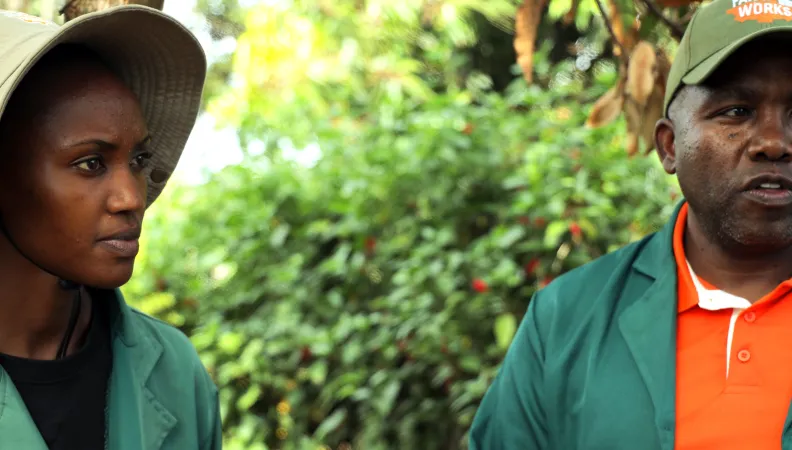Share the page
Adapting to climate change: how 3 African start-ups go about it
Published on

Farmerline, FarmWorks and SunCulture. These start-ups, financed by the ARAF fund, use technological innovation to help smallholder farmers adapt to climate change in East and West Africa. Interview with their managers who agree that there is an emergency.
This article has been published in Proparco's magazine Private Sector & Development n°38.
The ARAF fund is financed by several partners and development finance institutions – including Proparco via FISEA+, a facility deployed under the Choose Africa initiative implemented by AFD Group. It targets the issues of food security and climate change.
Read more: In Sub-Saharan Africa, the ARAF fund is strengthening the climate resilience of smallholder farmers
FarmWorks: create a rational farming model
“The major impact of climate change is the reduction in rainfall and the irregularity of rainy seasons. This causes a stagnation or decline in the overall yield of the main crops,” says Peter Muthee, cofounder of FarmWorks, a Kenyan start-up whose objective is to create a network of medium-sized farms (10 to 40 hectares) based on a rational farming model which improves adaptation to climate change. “These farms are operated using regenerative farming methods such as minimum tillage, mulching, drip irrigation, the addition of organic matter, agroforestry, etc. We’re currently building three farms like this in Kenya.”
Farmerline: provide training services tailored to the needs
The agri-tech Farmerline operates in Côte d’Ivoire and Ghana. It was set up in 2013 and supplies agricultural inputs adapted to climate change, as well as training services tailored to the needs of local farmers. “The latest report of the NGO 60 Decibels states that farmers in the South are on the front line of the climate crisis. 70% are faced with a myriad of climate risks, such as the lack or unpredictability of rainfall, extreme heat, flooding and the increase in parasites or agricultural diseases,” says Alloysius Attah, cofounder of Farmerline.
SunCulture: provide access to water and lighting
For Samir Ibrahim, cofounder of SunCulture, making African farmers resilient to climate change necessarily requires improving access to water. “96% of cultivated land in Africa is watered with rainwater and is not irrigated. The situation is getting worse and causing sharp declines in yields.” The Kenyan start-up, which also operates in Côte d’Ivoire, Ethiopia, Togo and Uganda, offers solutions using off-grid solar technology. This provides a reliable access to water, irrigation, lighting and mobile phone charging. “We support the climate resilience of smallholder farmers. We also improve their food security and increase their economic empowerment.”
Find out more in the magazine

